Barry Jenkins Filmmaking Advice: Look Inward and Take Risks
While most of us were wondering how Barry Jenkins would follow his triple-Oscar-win for Moonlight (2016), Jenkins wondered how he’d do James Baldwin justice.
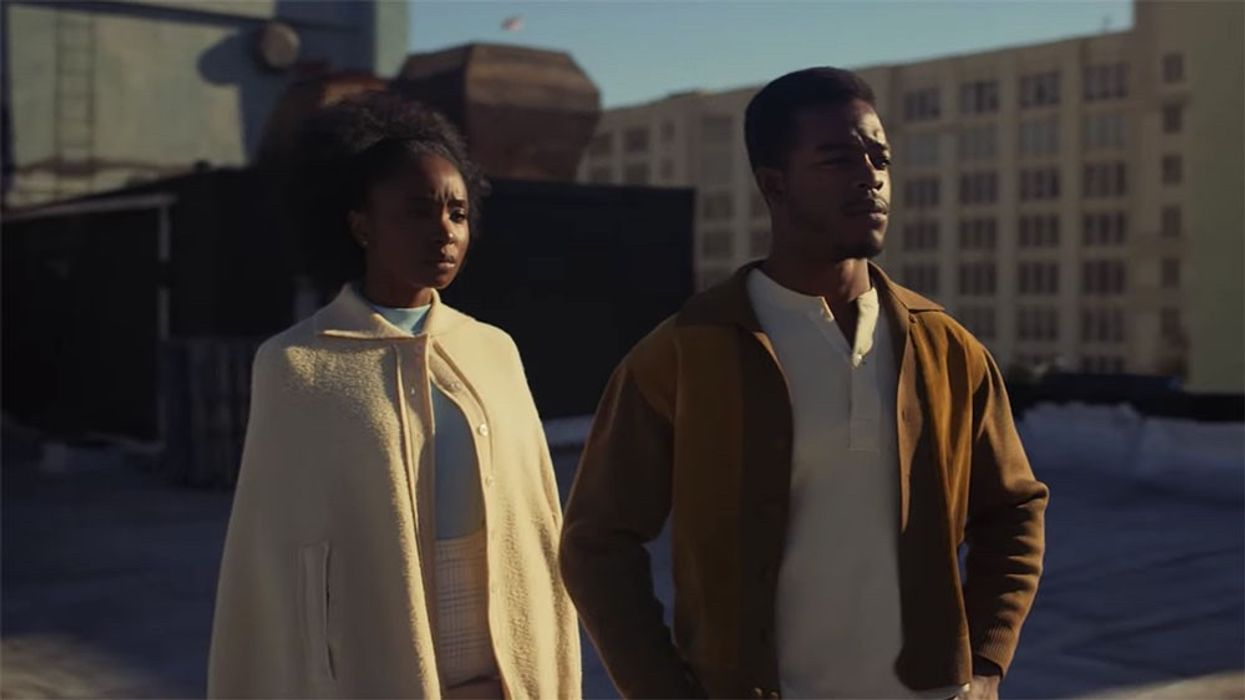
His latest film, If Beale Street Could Talk—adapted from Baldwin’s novel of the same name—is a brilliant collaboration between author and filmmaker. Baldwin, the legendary 20th-century wordsmith and human rights advocate, penned a long list of literary classics: novels, essays, plays and poems including Notes of a Native Son, Giovanni’s Room, Another Country and The Fire Next Time. It’s no surprise that Jenkins looked to the past: Baldwin’s eloquent prose is still incredibly, painfully relevant.
In Beale Street, Jenkins shines. He not only lives up to Baldwin’s work, but he also fuses it with his own soul. Without losing sight of love or laughter, he gives us a lush romance anchored in systemic injustices. The film unfolds like a play. Slowly, purposefully—and yes, affectionately—Jenkins explores each character’s inner space: a state of grace punctured by staccato bursts.
It’s a fitting ode to Baldwin, resplendent in heartbreaking beauty, raw in its rendering of heartbreaking truth.
How does Jenkins do it, one film after another?
Here to do your homework is NFS, who had the chance to hear Jenkins speak at NYFF, then later interviewed the filmmaker about his approach. From Die Hard to his own first efforts, from mental prep to feature rewrites, Jenkins digs deep.
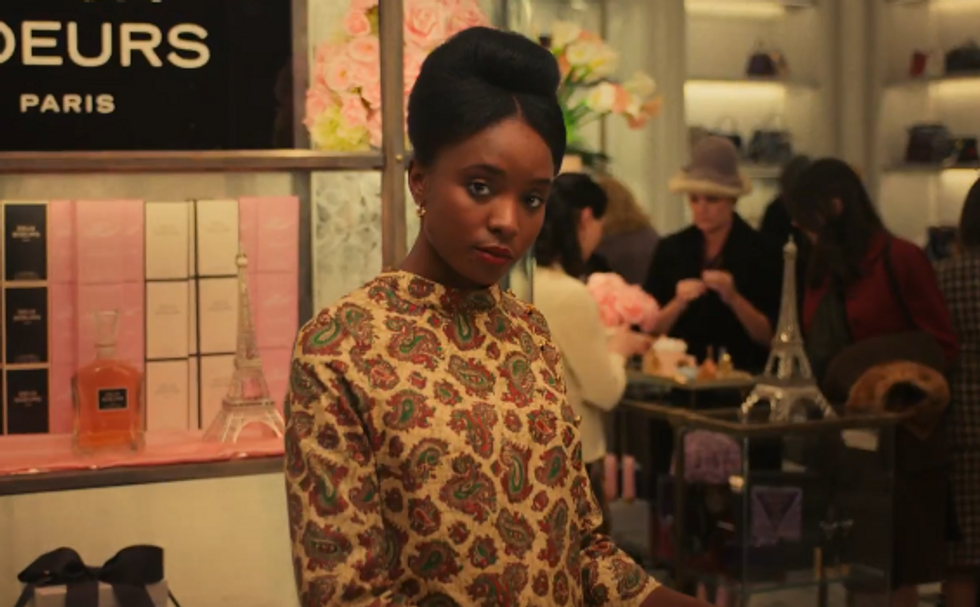
Learn to Overcome
“Every black person born in America was born on Beale Street...whether in Jackson, Mississippi or in Harlem, New York.” So reads the opening title card of Jenkins’ latest, asserting the universality of the Black American experience. Hope and despair, pain and love: these are Jenkins’ creative touchstones … and with good reason.
“I grew up in a very chaotic way,” Jenkins relayed matter-of-factly. Challenged early on by a turbulent upbringing—an absent father, a crack-addicted mother—he chose hope. “I didn’t think life would be easy. But it would’ve been even more extraordinary for me to survive as a pessimist.”
His affinity for impossible romances with hopeful undercurrents reflects his own background. “It’s not an intellectual thing,” he clarified, “I just evolved through my own experiences to have a hopeful worldview. Not that I’m trying to impose something on the characters in my films. Rather, I’m choosing to tell these particular stories because I see that quality of hope within them.”
Jenkins has been finding love in desolate places as far back as film school. In My Josephine—Jenkins’ self-proclaimed favorite of his earlier short films—he spins a middle-eastern couple who work in a laundromat into a dreamy romance. During a touching moment of togetherness, the camera—operated by Jenkins’ longtime collaborator, cinematographer James Laxton—floats up into fluorescent ceiling bulbs as if witness to an ecstatic vision: their form of heaven.
Immerse Yourself in Movies
The written word has always had a pull on Jenkins. He initially attended college with the intention of becoming an English teacher, then opted for a creative writing degree. Only after fits and starts did he begin to discover cinema: frequenting the local Blockbuster lit a creative spark within him. Eventually, he got into film school but described it as a struggle. “I realized I couldn’t keep up because I hadn’t seen enough movies. So I devoured everything in the film school library. That was my life. I did nothing but cinema.”
Once again, Jenkins seized control of his fate. He started journaling his thoughts and feelings, which fortified his connection to onscreen stories. The library was chock-full of French New Wave films; he developed a fondness for Jean-Luc Godard. Jenkins smiled, nostalgic. “It wasn’t like I thought they were masterpieces. Those films were just different.” He chuckled. “My short at the time, My Josephine … you could tell I was watching too much art-house shit.”
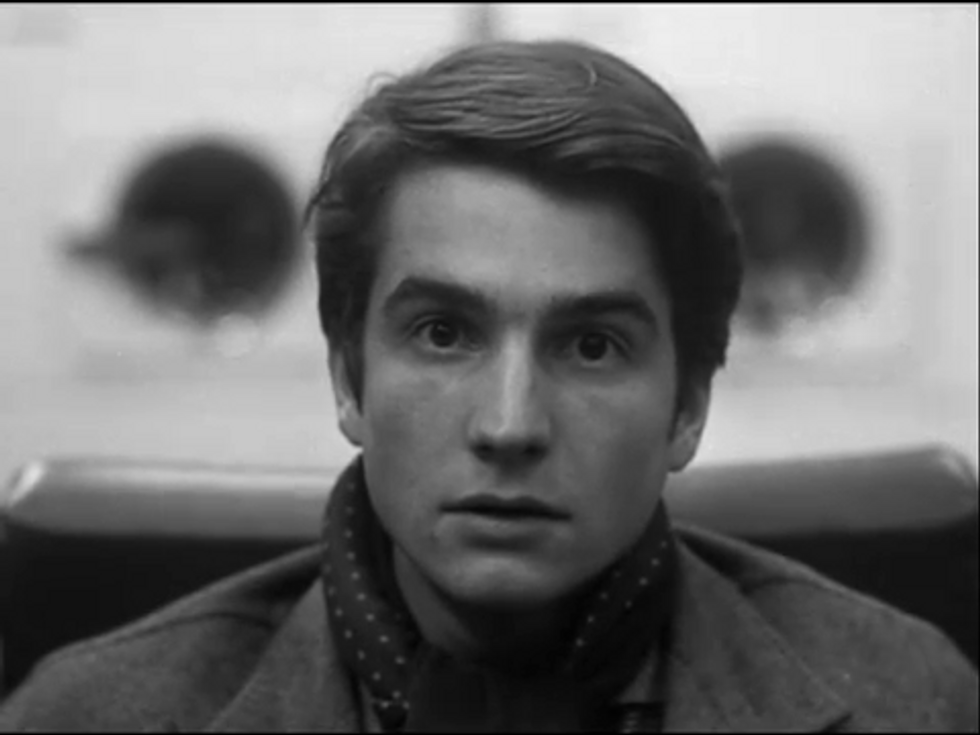
Other favorites include writer/director Claire Denis, whose visual language Jenkins describes as “so singular, free, and impulsive.” Plus filmmaker Wong Kar-Wai, whose novelistic narrations later became an important reference for Beale Street, where the story is told partly in voiceover.
Jenkin’s cinematic epiphanies weren’t limited to art-house movies, however: the 39-year-old director also cites Die Hard as a turning point. “When the credits for that film began to roll, I suddenly noticed how many names were in the crew. I realized that this seamless project was made by all these people working together. That’s when movies became larger than life for me.”
Discoveries from Jenkins’ salad days continue to fuel him today—but next to these giants, he still sees himself as an amateur. “I’m just a guy trying to do things. I work with the same people repeatedly. I’m very privileged that I haven’t had to conform. I’m still the same guy, just exploring new terrain. Only the stories change.”
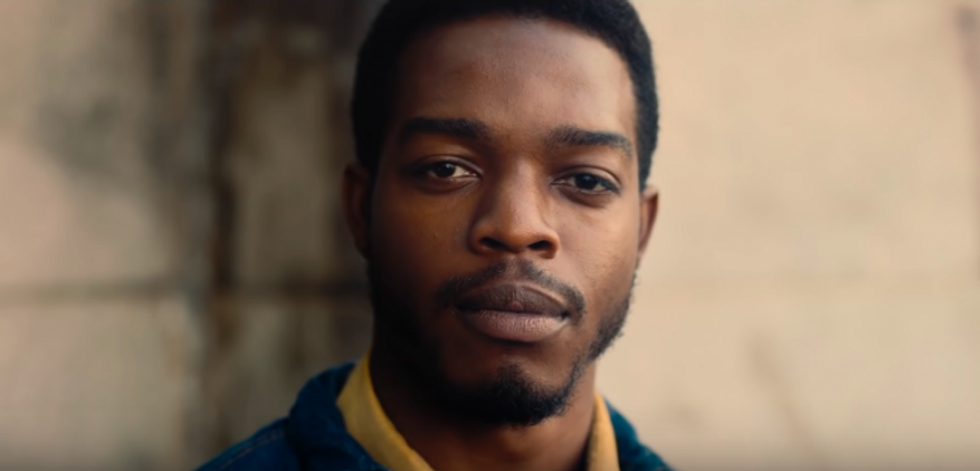
Practice Introspection
Almost paradoxically, Jenkins encourages looking outside of yourself as a way to see clearly within. This became his mantra, post-film school: keep trying new stuff. Based on reactions to his short film, My Josephine, he had a measure of confidence—but he also had to survive financially. “I had cultural capital, but no actual capital.”
First, he found work as an assistant, and then in development—one job was with Harpo Films, Oprah Winfrey’s production company—but he began to feel aimless, uninspired. In a bold move, he cashed in his 401k and used the money to travel the country, “bumming around on trains.” While he doesn’t recommend this exact strategy, he credits this period of introspection as the crucial inspiration for his acclaimed first feature, Medicine for Melancholy (2008).
Critics liked Medicine; things were beginning to fall into place. Then the right person saw it, and gave him funds to develop a “dream project.” Once again, he invested his windfall in introspection.
“I had to go somewhere where I knew no one,” Jenkins recalled. He polled friends for the most boring city in Europe and landed on Belgium, “I lived in Airbnbs and wrote two adaptations, draft after draft,” he reminisced. “It was one of the purest times of my life, just me and the characters. Nothing else. I told myself, ‘The reward is gonna be the pressure of writing.’ I had no clue I’d actually get to make these movies. I wrote Beale Street in four weeks, then Moonlight in ten days.”
Impressive is an understatement. But before you book your flight to Belgium, remember—Jenkins had already established himself with a series of short films and a first feature. You don’t need Flemish accents, grey skies or downtown Brussels to find inspiration. As Jenkins explains it, it’s all about where you go internally.
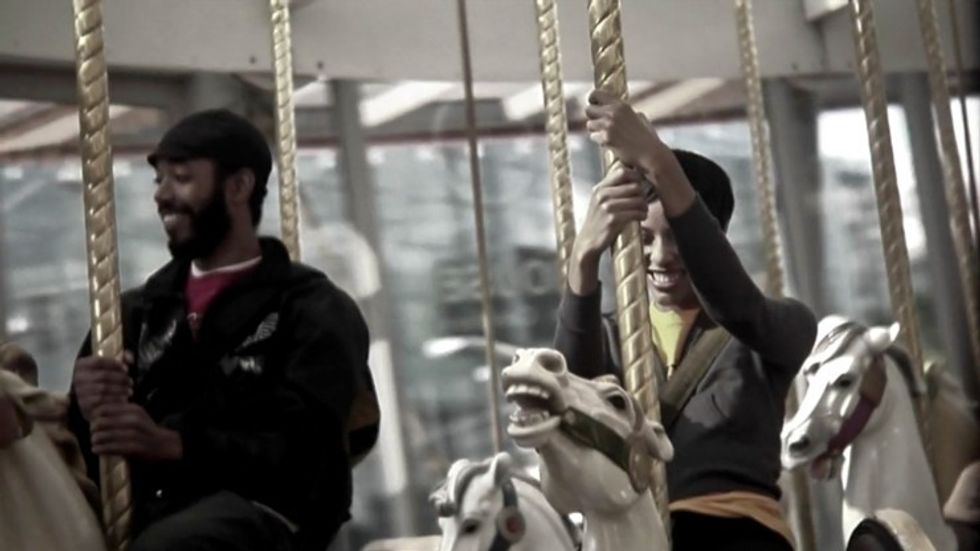
Take Big Risks
Jenkins also realized early on that his own evolution would be spurred by reaching beyond his comfort zone. Yes, he draws from his own well of experience; but he avoids regurgitating his own life story. Instead—much like Baldwin before him, who often chose to write fiction from a perspective other than his own—Jenkins actively seeks out creative challenges.
Take Moonlight: Jenkins is not a gay man, so when he set out to adapt a play about a gay romance, it was terrifying. “On Moonlight I had to deal with tough characters, and I worried about reinforcing stereotypes. I didn’t want to get it wrong.” Jenkins gave a slight shudder. “I was determined to render flesh and blood human beings.”
In the case of Beale Street, Jenkins’ challenge was to inhabit the perspective of a teenage girl. “The female gaze is equally terrifying,” he laughed. “I’ll never understand what it’s like to be a woman. But in order to grow as an artist, you need to examine the unfamiliar, get outside of yourself, take big risks. And you need to empathize.”
Perhaps the biggest risk Jenkins has taken was to adapt this book by James Baldwin. While Baldwin’s wisdom has been successfully shared in documentary form by Karen Thorsen’s The Price of the Ticket and Raoul Peck’s I Am Not Your Negro, this celebrated, sometimes controversial, often under-appreciated author has long seemed impervious to a literal, big-screen adaptation. But Jenkins was never one to listen to naysayers.
“I always ask myself, ‘What’s scary? What’s terrifying?’” He nodded, uncrossing his legs. “At some point, you have to start doing the things you feel incapable of doing.”
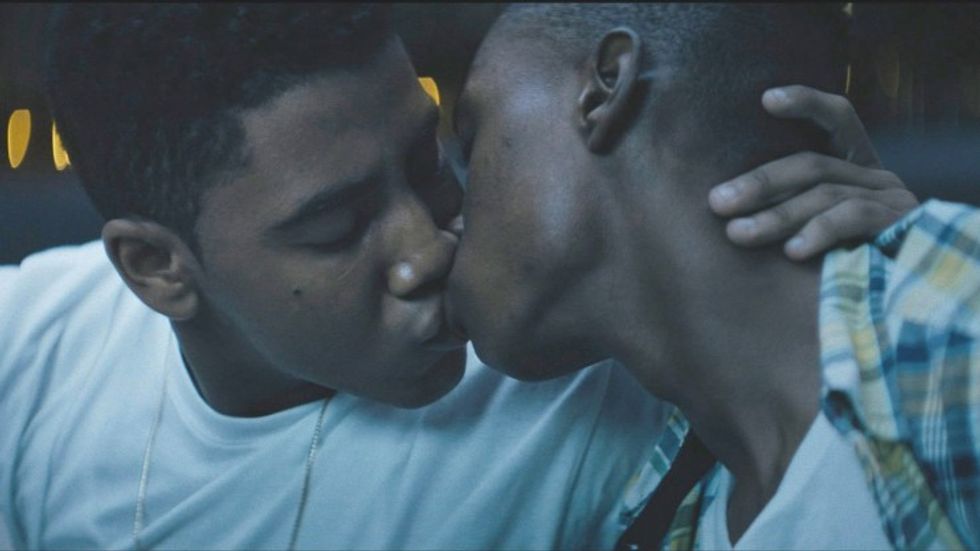
Listen to That Inner Voice
So how to turn what you fear into something you can actually do? Jenkins follows his inner voice—a phenomenon he calls ‘interiority.’ More an internal monologue than a spiritual guide, this is an ongoing thread he has developed since childhood: at first instinctively, then intentionally. And as he has learned over time, the best part is that this ‘conversation’ can be whatever you want it to be. You just have to make it a habit.
“Interiority is where the spirit of any creative work lives,” he explained. “For me, I explore it by writing down thoughts and feelings.” This is especially valuable when it comes to filmmaking. “As we shift further and further towards the visual, the interior becomes more important. Images have to reflect that interior bedrock.”
If visual art is the tip of the iceberg, the interior voice is everything beneath the surface: subjectivity, emotion, character, motivation. Discovering this was a major turning point in Jenkins’ creative understanding. It taught him to dig deep as an artist.
“Sometimes the housing of the craft is so seductive, you miss the truth within,” he warned. “If you’re used to hearing a particular message, you’ll accept it as a given—but you have to look deeper. It’s all in the eyes, so be observant of the world you’re living in, go that extra mile. Your duty as a storyteller is to reflect the soul.”
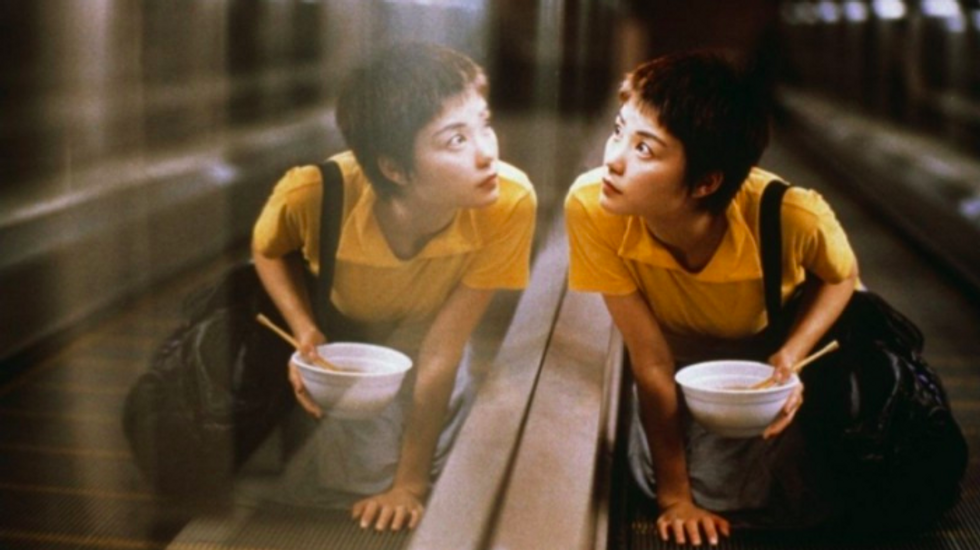
Pay Attention to Detail
As Jenkins sees it, all well-told tales depend on attention to detail. “I’m always telling myself I could do more,” Jenkins avowed. “Whatever I put my actors through, whatever my crew has to deal with, I must give myself the same treatment.”
This goes far beyond stylistic flair. True, Beale Street contains notable signature flourishes by Jenkins and Laxton—disarmingly intimate Depth of Field, characters gazing into the camera, even a dreamy 360—but the film owes much of its depth to the collaboration between Jenkins and Baldwin. Every artistic decision speaks volumes about their communal headspace: a tender kiss on a grey sidewalk; fingers curled together on a freezing night; wisps of smoke pierced by sunlight; a newborn baby pulled from a watery cocoon; a wistful touch through a glass wall.
Even skin color required Jenkins’ careful attention: both the dynamic of color as written by Baldwin, and the portrayal of characters in Jenkins’ film. In Beale Street, the rendition of faces is remarkably lush. “Skin tones matter,” Jenkins explained. “Many of my films feature people of color, and I’m always trying to render their image in the way that I feel is appropriate.” He paused for a moment, traveling inwards. “But it’s not just about color. There are times when skin tones have been disregarded, so I think that choosing to honor them can have an emotional effect on the audience.”
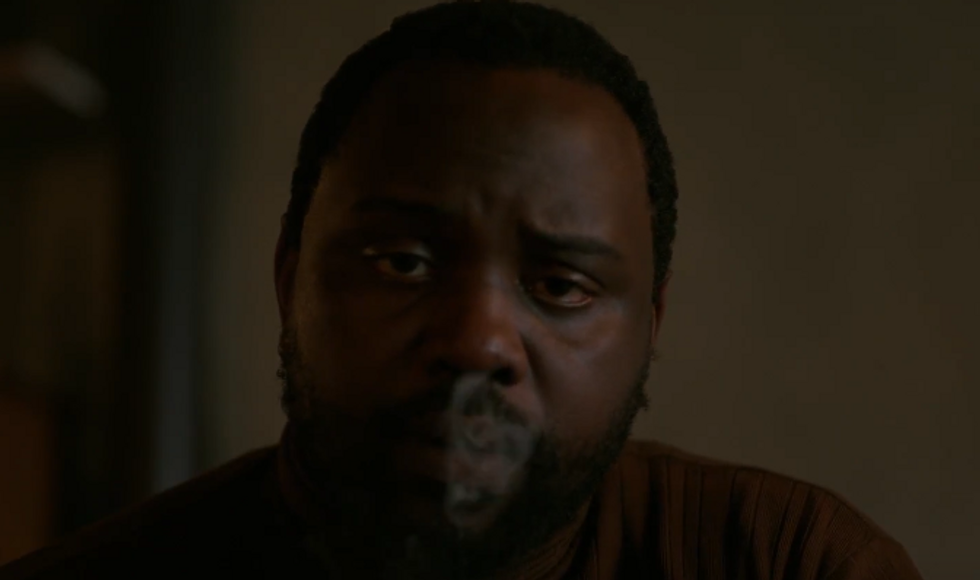
Give it Your Own Spin
Among the many challenges Jenkins took on during the making of Beale Street was James Baldwin’s prose. Rich with long, thoughtful sentences, at times almost musical, it wasn’t easy to render in voiceover. In lesser hands, this might have been the film’s biggest flop, but with Jenkins’ help—along with the talented KiKi Layne, who evokes a compellingly tender Tish—Baldwin’s voice shines through.
“We wanted to recreate that evocative nature of his writing, but we tried not to be too literal about it,” the filmmaker explained. “Nevertheless, even with all the cuts, the film’s pacing and structure does feel Baldwinian. When I read Baldwin, I feel like I’m entering a stream of consciousness. The way he built paragraphs was almost like jazz.”
Doing Baldwin justice also meant leaving out certain plot points. “Adapting James Baldwin, it’s just so damn dense,” Jenkins laughed, still in awe of the task he chose. “Trying to adapt every element of the book is a fool’s errand. I hope my film inspires people to go to the book, because a two-hour film can never capture what’s present in a 200-page novel—especially when it’s Baldwin.”
The biggest challenge in Jenkins’ page-to-screen translation was the co-existence of light and darkness—a constant theme throughout Baldwin’s writing. Beale Street deals with social injustice, wrongful imprisonment, rape … and yet it also holds onto hope. For Jenkins, that felt like a positive message.
“Unlike other Baldwin novels,” he argued, “If Beale Street Could Talk really has a projective future. It expresses the duality of experience for Black Americans: both the pain they endure and the love that sustains them. And it also asserts their humanity.” Even so, Jenkins chose to enhance the love. In order to convey Baldwin’s bittersweet tone, that sense of impending doom laced with hope, the filmmaker added both visual cues and emotional beats … plus a key piece of dialogue. (Hint: the landlord says it.)
Jenkins owns his ‘enhancements’ with pride and humility. “The changes I made are important to me because I believe they were faithful to Beale Street. Mr. Baldwin understood the resilience of the Black Experience, he knew how to find hope in the most dire circumstances. And that’s what I’ve tried to do in my previous work.” Jenkins paused, looking back. “When you read a book, you’re so deeply immersed in the interior life of the characters, a soft ending can work, you don’t need it to be more conclusive. But for the film, I wanted to end on a concrete image, an image grounded in reality. The idea of a grounded, realistic kind of hope is very important to me. That’s why I changed the ending.”
Some might see this as blasphemy—but Baldwin probably would have given Jenkins his blessing. After all, in Baldwin’s own critique on cinema, The Devil Finds Work, he describes adaptation as a necessary evil, an artistic act that requires “doing considerable violence to the written word.”
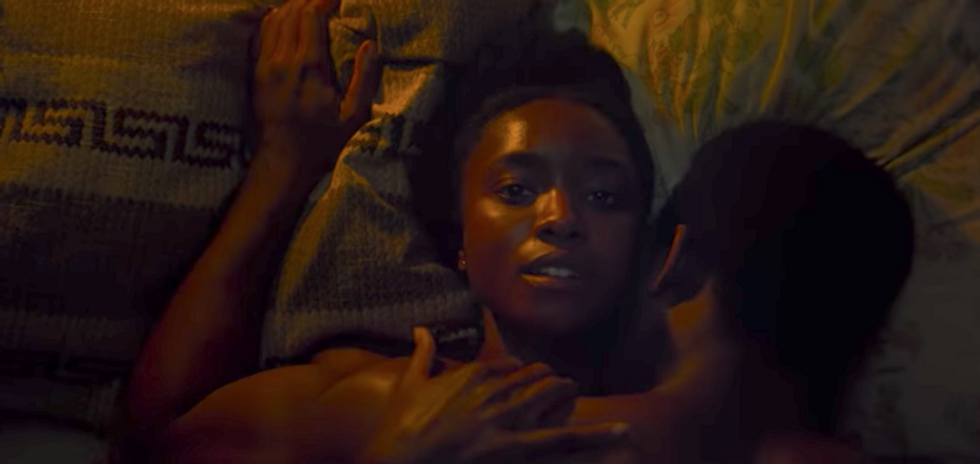
Find the Connective Tissue
What’s the next challenge for Jenkins? He’ll be tackling the smaller screen, with an Amazon limited series based on Colson Whitehead’s acclaimed novel, The Underground Railroad ... and he’ll be honing his personal focus.
“When you figure out what you want to do, focus on it. Drill down.” His voice softened. “But be patient. Everyone wants to make it tomorrow—but you don’t need to be an overnight sensation. Moonlight came out when I was 36. Mahershala Ali had to grind for 20 years before he found success. Twenty years of just loving the craft, loving the process. Don’t blink, man.” He gave an avuncular grin. “There’s not a long distance from where I am and where you’re sitting—but in order to bridge that distance, there is only YOUR way, so do that.” He paused, suddenly professorial. “And read In the Blink of an Eye by film editor Walter Murch.”
Jenkins’ last piece of advice is a call-to-action. “The world is on fire. It’s impossible not to feel those things and process them—and it’s important to share how you feel.” As he explains it, the path is instinctive, individual, but the cause is collective. “I’m not trying to save the world by telling stories, the burden of that is just too heavy,” he cautioned. “It’s a slippery slope, trying to make art that directly engenders that response—but I do think it’s possible to shift perspectives through storytelling, to illuminate a way towards a more hopeful experience. A better world.”
Sound familiar? Back in 1979, James Baldwin gave the same advice: “If you alter, even by a millimeter, the way people look at reality, you can change it.” Both Baldwin and Jenkins have made that conviction one of their life goals—but that’s not all they have in common. They both insist on the importance of love.
Jenkins nodded in confirmation. “That’s where we all connect, no matter our race, no matter our sexuality. Love. It’s a dramatic urge, a yearning, that makes us all fundamentally human.” He flashed his easy smile. “That’s what made me choose Beale Street. If there is connective tissue, that’s it.”











